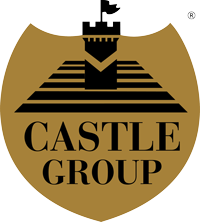Hurricane Season Preparation: Legal Guidelines and Best Practices for Community Associations – Insights from Association Leadership Webinar Series S6, E6
April 23, 2025

In the latest episode of Castle Group’s Association Leadership Webinar Series, Season 6, Episode 6, the expert panel discussed Hurricane Season Preparation: Legal Guidelines and Best Practices for Community Associations. With a predicted above-average hurricane season, Florida community associations must proactively prepare their properties and residents. The April webinar hosted by Castle Group featured Brian Street, Executive Vice President of Field Operations at Castle Group, and Ken Direktor, Chair of Becker’s Community Association Practice Group, discussing the legal landscape, practical considerations, and operational checklists for hurricane preparedness.
Mandating Hurricane Protection: The discussion emphasized that the first step for any association is deciding whether to mandate hurricane protection. If an association chooses to mandate it, they must determine:
- Responsibility: Clarify whether the association or individual owners are responsible for installation, maintenance, repair, and replacement.
- Type of Protection: Define whether the mandate covers shutters, impact glass, or both. Associations may also allow homeowners to choose between approved options.
- Implementation Method: The most secure way to mandate protection is through an amendment to the declaration, which binds all unit owners and is presumed reasonable under Florida law.
Condominiums vs. HOAs: While the Condominium Act provides statutory authority for mandating hurricane protection, HOAs depend more heavily on governing documents and local ordinances. The principles of preparedness and protection, however, apply to both.
Architectural Guidelines: Adopting enforceable architectural guidelines ensures uniformity in appearance and quality. These guidelines should cover shutter types, installation methods, color schemes, and placement to avoid structural damage, such as water intrusion through improperly installed fixtures.
Amending Declarations: Amending governing documents to mandate hurricane protection involves member voting and careful planning. Associations must clearly outline:
- Installation and maintenance responsibilities
- Enforcement mechanisms, including self-help clauses
- Compliance timelines and inspection protocols
Shutdown Rules for Vacant Units: With many Florida residents leaving for extended periods, especially during hurricane season, associations should adopt “unit shutdown rules.” These rules can include:
- AC requirements to prevent mold
- Furniture and shutter protocols
- Designation of local contacts for unit checks
- Procedures for association access and emergency action
Short-Term Rentals and Transient Populations: Communities with transient guests must establish more stringent preparation rules to address unfamiliarity with storm risks: safety and legal liability demand clear rules and proactive communication.
Enforcement and Liability: Associations should establish enforcement procedures for non-compliant units. In the event of damage, immediate repairs should be prioritized, followed by cost recovery from the responsible party. Legal counsel should guide associations in drafting language that protects both the community and the board.
Cost and Insurance Considerations: Hurricane protection can help minimize exposure to windstorm deductibles, which often reach into the millions. Proper documentation, including photographic evidence of pre-storm conditions and secured storage of vital records, is crucial.
As the start of hurricane season approaches, associations must act swiftly to implement hurricane protection mandates, adopt clear shutdown rules, and update architectural guidelines. Partnering with legal, management, engineering, and insurance professionals ensures a comprehensive approach that protects both property and people. Boards should prioritize legal amendments and operational checklists now to be storm-ready.
To watch the full webinar on Hurricane Season Preparation: Legal Guidelines and Best Practices for Community Associations, visit https://castlegroup.com/webinar/hurricane-protection-regulations-what-every-association-needs-to-know/.
To learn more about how Castle Group can serve your community, request a proposal at https://castlegroup.com/request-a-proposal/.
Tags:

